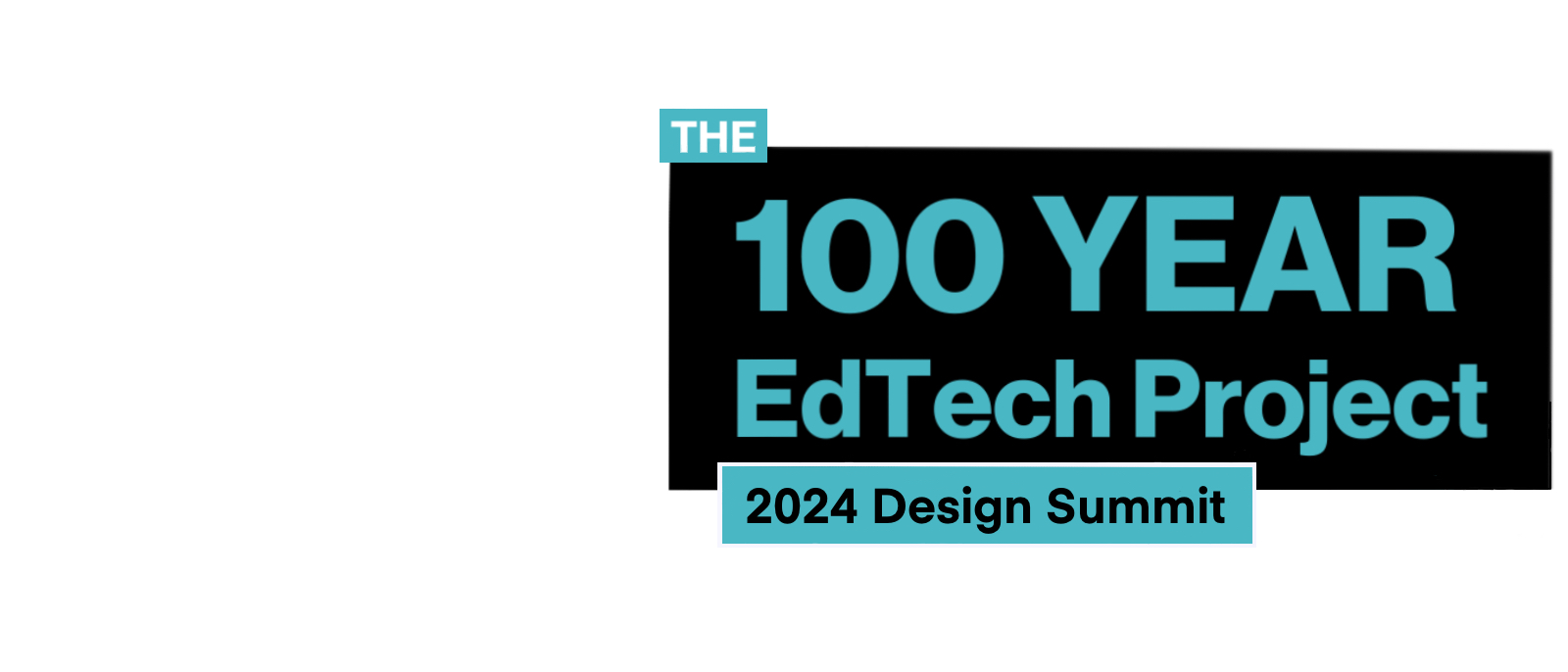HARRISBURG, PA – In early March, John McKnight, PhD, Assistant Professor of Sociology of Emerging Technologies at Harrisburg University, attended the 100-Year EdTech Project Design Summit: an invitation-only conference for thought leaders throughout the education, administration, political, and business communities.
At the 2024 Design Summit, participants came together to consider various scenarios occurring 50 years in the future. The goal was to imagine how the intersection of technology, education, and human values will impact incoming generations of learners.
“The event featured a very diverse group of thought leaders from academia, industry, and entrepreneurs at every scale,” said Dr. McKnight. “They were drawn from a huge variety of fields. Then, the attendees were split into teams to build out, in depth, the topics and scenarios that came out of early workshops by the event organizers, the EdTech Project.”
Some of the scenarios presented included adaptation to climate change, coming to terms with the presence of AI in the classroom and workplace, and exploring the impact of outside influences on students – ranging from new performance-enhancing drugs to the rollout of new technologies and educational aids. The Design Summit exists to explore these topics with true depth and with foresight that peers decades into the future.
One of the things that became apparent early on, said Dr. McKnight, was the attendees’ certainty that the workshop scenarios were not – in his words – the true “core issue.”
“These scenarios that our groups explored, from AI to Adderall to climate change, aren’t the core issues after all,” said Dr. McKnight. “Across every conversation and scenario, we came to universally believe that the true underlying issues are access, fairness, and justice.”
“In every scenario, we kept coming back to the central issues of quality and access. How do disruptive technologies change us? Are these good changes? And are the benefits being equitably distributed? What is cheating, what is enhancement, what is remediation? These are the issues we want to explore.
“This summit is a way to converge on a strong call-to-action on increasing diversity in education and education technology. Our job is to have an honest reckoning with the technologies touching our lives each day, and learn how to remove geographic, financial, and cultural barriers to access.”

Dr. McKnight summed up his time at the Design Summit with the word, “pluriverse.”
“It comes to us from Arturo Escobar’s book, “Designs for the Pluriverse,” which uses Indigenous studies and decolonial efforts to explore social orders and designing human environments,” he explained. “Among other things, a pluriverse recognizes that learning is a lifelong, holistic process. And importantly, it can happen anyplace.
“That’s a promise, but also a challenge. Humans have the means to substantially improve standards of living and access to critical resources. We have food deserts, healthcare deserts, and education deserts. Pluriverse is a concept that refers to meeting citizens and learners where they are, and ensuring nobody is left out of life-changing experiences and emerging opportunities – most especially new learning aids, methodologies, and technologies.”
Harrisburg University congratulates Dr. McKnight on being invited to represent HU at the 2024 EdTech Design Summit, and for working to make the world of education more empathetic, equitable, and accessible.
ABOUT HARRISBURG UNIVERSITY
Harrisburg University is accredited by the Middle States Commission on Higher Education and is a private, nonprofit university offering bachelor’s and graduate degree programs in the fields of science, technology, and mathematics. For additional information about the University’s affordable, demand-driven undergraduate and graduate programs, please call 717-901-5146 or email Connect@HarrisburgU.edu. Stay updated by following Harrisburg University on X, LinkedIn, Instagram, and Facebook.
